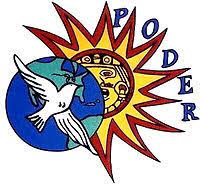타우리 이오타
Iota Tauri| 관측 데이터 에폭 J2000 이쿼녹스 J2000 | |
|---|---|
| 별자리 | 황소자리 |
| 우측 상승 | 05h 03m 05.74725s[1] |
| 탈위임 | 21° 35′ 23.8627″[1] |
| 겉보기 크기(V) | 4.62[2] |
| 특성. | |
| 스펙트럼형 | A7 V[3] |
| U-B색지수 | +0.15[4] |
| B-V색지수 | +0.16[4] |
| 아스트로메트리 | |
| 방사 속도(Rv) | +38.30km[5]/s |
| 적정운동(μ) | RA: +68.88[1]mas/yr Dec.: -41.06[1]mas/yr |
| 시차(시차) | 18.88 ± 0.30 마스[1] |
| 거리 | 173 ± 3 리 (53.0 ± 0.8 pc) |
| 절대치수(MV) | 1.00[2] |
| 세부 사항 | |
| 미사 | 2.22[6] M☉ |
| 반지름 | 2.6[7] R☉ |
| 루미도 | 36[6] L☉ |
| 표면 중력(log g) | 3.97[8] cgs |
| 온도 | 8,054[6] K |
| 금속성 [Fe/H] | +0.15[2] 덱스 |
| 회전 속도(v sin i) | 시속 131km[6] |
| 나이 | 717[8] 마이어 |
| 기타 지정 | |
| 데이터베이스 참조 | |
| 심바드 | 자료 |
aur 타우리에서 라틴어로 표기된 이오타 타우리는 12궁도자리 타우루스자리에 있는 백색 후리 항성으로, 히아데스 항성 집단의 외딴 구성원이다.[9]육안으로는 4.62의 외관상 시야로 볼 수 있으며,[2] 시차 측정에 근거해 약 173광년의 추정 거리에 위치한다.[1]이 별은 방사상 속도 +38 km/s로 태양으로부터 멀어지고 있다.[5]
이는 유형 A7V와 규모 5.4 모두 0.1"로 분리된 두 구성 요소를 가진 이중 별로 보고되었다.[10][11]결합된 스펙트럼은 A7 V의 항성 분류와 일치하며,[3] 이는 일반적으로 핵에서 수소 융합을 통해 에너지를 생성하는 A형 주계열성을 나타낸다.이것은 7억[8] 1천 7백만 년으로 추정되는 나이를 가지고 있다.
참조
- ^ a b c d e f Van Leeuwen, F. (2007). "Validation of the new Hipparcos reduction". Astronomy and Astrophysics. 474 (2): 653–664. arXiv:0708.1752. Bibcode:2007A&A...474..653V. doi:10.1051/0004-6361:20078357. S2CID 18759600. Vizier 카탈로그 항목
- ^ a b c d Anderson, E.; Francis, Ch. (2012). "XHIP: An extended hipparcos compilation". Astronomy Letters. 38 (5): 331. arXiv:1108.4971. Bibcode:2012AstL...38..331A. doi:10.1134/S1063773712050015. S2CID 119257644. Vizier 카탈로그 항목
- ^ a b Abt, Helmut A.; Morrell, Nidia I. (1995). "The Relation between Rotational Velocities and Spectral Peculiarities among A-Type Stars". Astrophysical Journal Supplement. 99: 135. Bibcode:1995ApJS...99..135A. doi:10.1086/192182.
- ^ a b Mallama, A. (2014). "Sloan Magnitudes for the Brightest Stars". The Journal of the American Association of Variable Star Observers. 42 (2): 443. Bibcode:2014JAVSO..42..443M.Vizier 카탈로그 항목
- ^ a b Gontcharov, G. A. (2006). "Pulkovo Compilation of Radial Velocities for 35 495 Hipparcos stars in a common system". Astronomy Letters. 32 (11): 759–771. arXiv:1606.08053. Bibcode:2006AstL...32..759G. doi:10.1134/S1063773706110065. S2CID 119231169.
- ^ a b c d Zorec, J.; Royer, F. (2012). "Rotational velocities of A-type stars". Astronomy & Astrophysics. 537: A120. arXiv:1201.2052. Bibcode:2012A&A...537A.120Z. doi:10.1051/0004-6361/201117691. S2CID 55586789. Vizier 카탈로그 항목
- ^ Allende Prieto, C.; Lambert, D. L. (1999). "Fundamental parameters of nearby stars from the comparison with evolutionary calculations: Masses, radii and effective temperatures". Astronomy and Astrophysics. 352: 555–562. arXiv:astro-ph/9911002. Bibcode:1999A&A...352..555A. Vizier 카탈로그 항목
- ^ a b c David, Trevor J.; Hillenbrand, Lynne A. (2015). "The Ages of Early-Type Stars: Strömgren Photometric Methods Calibrated, Validated, Tested, and Applied to Hosts and Prospective Hosts of Directly Imaged Exoplanets". The Astrophysical Journal. 804 (2): 146. arXiv:1501.03154. Bibcode:2015ApJ...804..146D. doi:10.1088/0004-637X/804/2/146. S2CID 33401607. Vizier 카탈로그 항목
- ^ Varenne, O.; Monier, R. (November 1999), "Chemical abundances of A and F-type stars: the Hyades open cluster", Astronomy and Astrophysics, 351: 247–266, Bibcode:1999A&A...351..247V.
- ^ Mason, Brian D.; Wycoff, Gary L.; Hartkopf, William I.; Douglass, Geoffrey G.; Worley, Charles E. (2001). "The 2001 US Naval Observatory Double Star CD-ROM. I. The Washington Double Star Catalog". The Astronomical Journal. 122 (6): 3466. Bibcode:2001AJ....122.3466M. doi:10.1086/323920. Vizier 카탈로그 항목
- ^ Eggleton, P. P.; Tokovinin, A. A. (2008). "A catalogue of multiplicity among bright stellar systems". Monthly Notices of the Royal Astronomical Society. 389 (2): 869. arXiv:0806.2878. Bibcode:2008MNRAS.389..869E. doi:10.1111/j.1365-2966.2008.13596.x. S2CID 14878976. Vizier 카탈로그 항목



